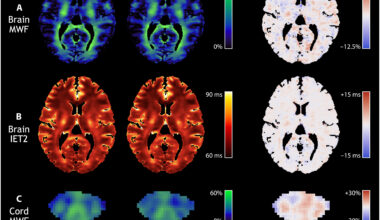Variety is key to staying mentally sharp
If you’ve discovered the joy of Wordle, you’ll be glad to know that word games can help keep you mentally sharp. But if you’re getting a bit weary of guessing five-letter words, it might be time to try something new.
Your brain will thank you for it later.
“If your goal is to stay mentally sharp, you should do a lot of different type of puzzles. Don’t do just one type,” advises neurologist Robin Hsiung of UBC’s Djavad Mowafaghian Centre for Brain Health. That’s because certain puzzles train certain parts of your brain—the part that controls language and spelling, for example, when you play a word puzzle—rather than the brain as a whole. “The more types of puzzles you solve, the more brain exercises you do, you form new synapses, which are the connections between brain cells. That helps to ward off diseases.”
Your brain on puzzles
Dr. Hsiung, who is also an associate professor in UBC Faculty of Medicine’s Division of Neurology, studies the brain, memory loss, Alzheimer’s disease and related dementia. He says research shows that stimulating the brain by doing mental exercises like puzzles can indeed help prevent Alzheimer’s disease and dementia in people who haven’t yet shown significant cognitive decline. But there are many different “domains”, or brain functions, that you can stimulate. In addition to language, for example, there’s short term memory, mathematical skills and eye-hand coordination, among others.
“The more you stimulate it, the more efficient your brain becomes.”
Dr. Robin Hsiung
“You can train one domain and that domain gets better, but that doesn’t translate to another function,” he explains. So while Wordle might strengthen the brain area that controls spelling, it won’t do much to stimulate the arithmetic domain. Similarly, a card-matching game might improve your short-term memory but won’t make your speech any better. A jigsaw puzzle or three-dimensional puzzle could help your visual recognition and hand-eye coordination but it won’t help your vocabulary.
That’s why it’s important to train your brain in many different ways, which can then work together.
“The more you stimulate it, the more efficient your brain becomes,” says Dr. Hsiung. “The information travels from one part of the brain to another and the processing of the information gets faster. You store knowledge and then can retrieve that knowledge faster.”
“Intelligence,” he adds, “is faster brain processing with a wider knowledge base.”
Prevention starts young
Dr. Hsiung notes that young people, not just those in midlife, can benefit from continually developing a wide range of skills. Once dementia has set in, research shows that stimulating the brain is not nearly as effective in stopping decline. It can also be frustrating for people to try to develop new skills at that point. “Prevention is better than treatment for the next generation,” he says.
The key is to find something new that challenges you at a level that feels rewarding and builds progression. So if the Sunday New York Times crossword is frustratingly difficult, try the easier Monday version instead, and go from there.
Or think outside the puzzle boxes and cultivate a new skill. “Creative pursuits are also very stimulating to the brain,” Dr. Hsiung notes. You can build connections in your brain by learning a musical instrument, taking a history class, or speaking a new language. Even physical exercise can boost your mental health. “You have to do a wide variety of things to make your whole brain connected,” he says.
Solving the puzzles of business and life
Statistician Jonathan Berkowitz got hooked on Scrabble as a kid and still loves puzzles so much that he wrote a book on the benefits of puzzles. Now a statistics lecturer at UBC’s Sauder School of Business, Dr. Berkowitz has also taught a course at Sauder for executives that focuses on puzzles and problem-solving for business decision-making.
“Business at its core is about problem solving,” Dr. Berkowitz points out. “If you stop looking for new possibilities, you become rigid in your thinking.”
Doing puzzles, he says, helps you to step back and take a fresh look at the problem and ways of viewing it in the context of the situation. “We say in statistics if there is only one way to interpret the data then it’s probably wrong.”
Puzzles also help you makes sense of patterns and thus make sense of the world around us. “Humans are a pattern seeking species,” Dr. Berkowitz says. “We can’t stand things that are random.”
Dr. Hsiung confirms that puzzles can indeed help with developing problem-solving skills by stimulating the brain’s frontal lobe, which is used to make decisions. “You learn from past history and experience and look at patterns to help predict what will happen in the future.”
Berkowitz points to myriad other puzzle-solving skills that can be applied in everyday life. These include concentration, parsing information, finding creative ways to work within defined constraints, and exercising lateral thinking.
Puzzles also help you cultivate persistence, and in turn, resilience. “You can’t have a defeatist attitude when you’re doing a puzzle,” Dr. Berkowitz says. “Just try something! Puzzles are created for the express purpose of being solved. Use your toolbox of skills and find a crack.”
And don’t forget to enjoy yourself while you’re at it. Dr. Berkowitz says Wordle enthusiasts have discovered one of the pleasures of word games: “Puzzles give us a finite, solvable experience. They’re one little way in which we can control our lives.”


